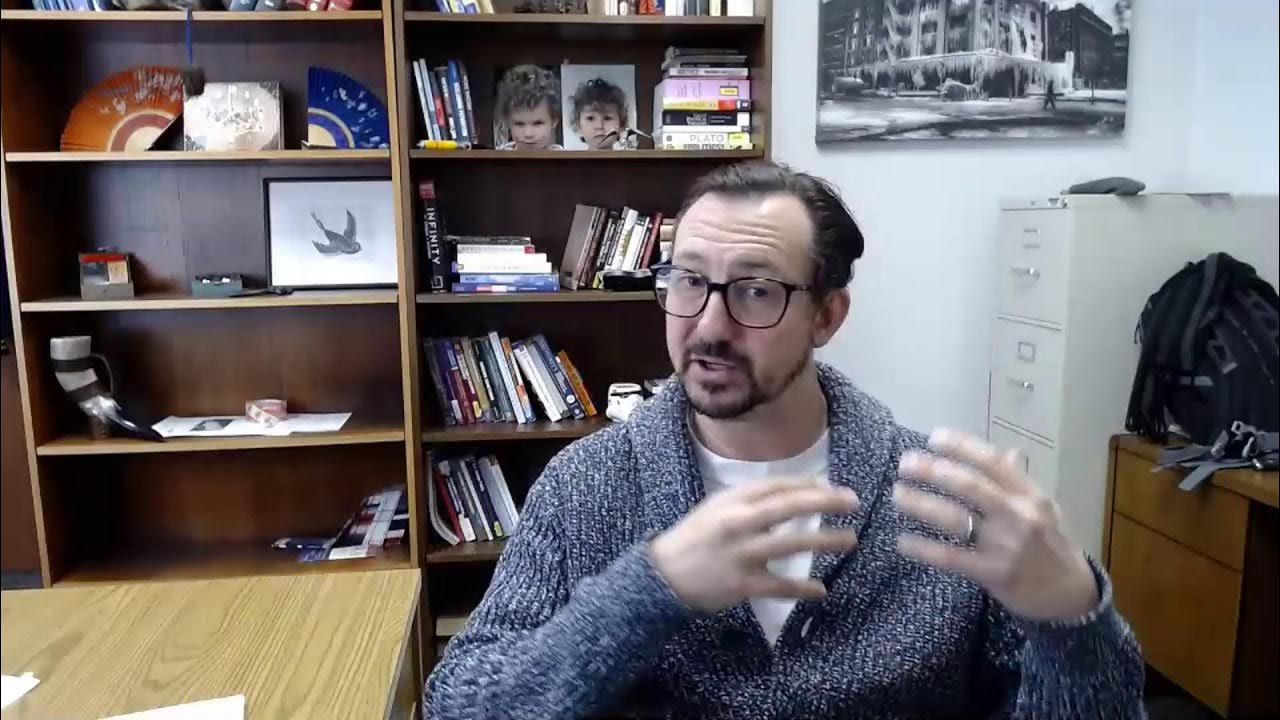Court Shorts: Separation of Powers
Summary
TLDRThis transcript explains the importance of the separation of powers in the U.S. Constitution, highlighting its role in creating a stable and effective government. It outlines the three branches—Legislative, Executive, and Judicial—and their unique but interdependent powers, emphasizing the checks and balances that prevent any one branch from dominating. The judiciary's independence is stressed, particularly in cases where it protects constitutional rights, even when unpopular. The system's design ensures liberty, fairness, and justice for all, contributing to the enduring strength of American democracy.
Takeaways
- 🇺🇸 The separation of powers is a key concept that underpins American democracy, promoting stability and collaboration between branches.
- 📜 The U.S. Constitution has established three branches of government: the Legislative, Executive, and Judicial branches.
- 🏛️ The Legislative Branch, or Congress, is responsible for creating laws, but it relies on the Executive Branch for approval.
- 👨⚖️ The Executive Branch, led by the President, includes all executive officers and has the power to veto legislation.
- ⚖️ The Judicial Branch, which includes the Supreme Court, U.S. Courts of Appeals, and District Courts, interprets laws and ensures they comply with the Constitution.
- 🔄 The system of checks and balances prevents any one branch from having too much power, as each branch has powers that depend on the others.
- 🗣️ Congress, despite its law-making powers, needs the President's approval and faces checks from the Judiciary through judicial review.
- 📜 Judicial review allows courts to assess the constitutionality of laws, protecting citizens' rights and liberties, even for unpopular opinions.
- ⏳ Judicial independence is protected through life tenure, allowing judges to make decisions without fear of repercussions from other branches.
- 🛡️ The Judiciary serves as the ultimate guardian of the Constitution, upholding fairness, liberty, and justice by interpreting the Constitution's meaning.
Q & A
What is the primary concept that makes America's government system unique?
-The separation of powers is what makes America's government system unique, with three distinct branches working together to ensure stability and democratic governance.
What are the three branches of government established by the Constitution?
-The three branches of government are the Legislative Branch, the Executive Branch, and the Judicial Branch.
What is the role of the Legislative Branch in the U.S. government?
-The Legislative Branch is responsible for creating laws. It consists of Congress, which includes the House of Representatives and the Senate.
What powers does the Executive Branch hold, and who is part of it?
-The Executive Branch, headed by the President, includes executive officers and is responsible for enforcing laws. The President also has the power to veto laws passed by Congress.
What role does the Judicial Branch play in the U.S. government system?
-The Judicial Branch, including the Supreme Court and lower federal courts, interprets laws and ensures they comply with the Constitution. It has the power to strike down unconstitutional laws.
Why did the framers of the Constitution create a system with three separate branches?
-The framers wanted to prevent the concentration of power by creating a system of checks and balances, ensuring that each branch would be dependent on cooperation with the others.
How can Congress override a presidential veto?
-Congress can override a presidential veto by achieving a two-thirds majority vote in both the House of Representatives and the Senate.
What happens if a law is challenged as unconstitutional?
-If a law is challenged as unconstitutional, the Judicial Branch reviews the case and determines whether the law complies with the Constitution. If it does not, the court can strike it down.
How does judicial independence benefit the U.S. government system?
-Judicial independence allows judges, particularly in the Supreme Court, to make decisions based solely on constitutional interpretation, without influence from Congress or the Executive Branch.
What example is given to demonstrate the Supreme Court's role in protecting individual liberties, even when unpopular?
-An example given is the Supreme Court’s decision on flag desecration, where the court upheld the First Amendment right to free speech, even though burning the flag is highly unpopular.
Outlines

This section is available to paid users only. Please upgrade to access this part.
Upgrade NowMindmap

This section is available to paid users only. Please upgrade to access this part.
Upgrade NowKeywords

This section is available to paid users only. Please upgrade to access this part.
Upgrade NowHighlights

This section is available to paid users only. Please upgrade to access this part.
Upgrade NowTranscripts

This section is available to paid users only. Please upgrade to access this part.
Upgrade NowBrowse More Related Video

Marcuzzo, KSS, Pestritto and the progressive era

Separation of Powers and Checks and Balances: Crash Course Government and Politics #3

Staatskunde: Demokratie und Gewaltenteilung – was heisst das für mich?

Teorias de MONTESQUIEU - O ESPÍRITO DAS LEIS - SEPARAÇÃO DOS TRÊS PODERES

La "Virginia Declaration of Rights" de 1776

Freis Emmersen dan Kewenangan Pemerintah
5.0 / 5 (0 votes)